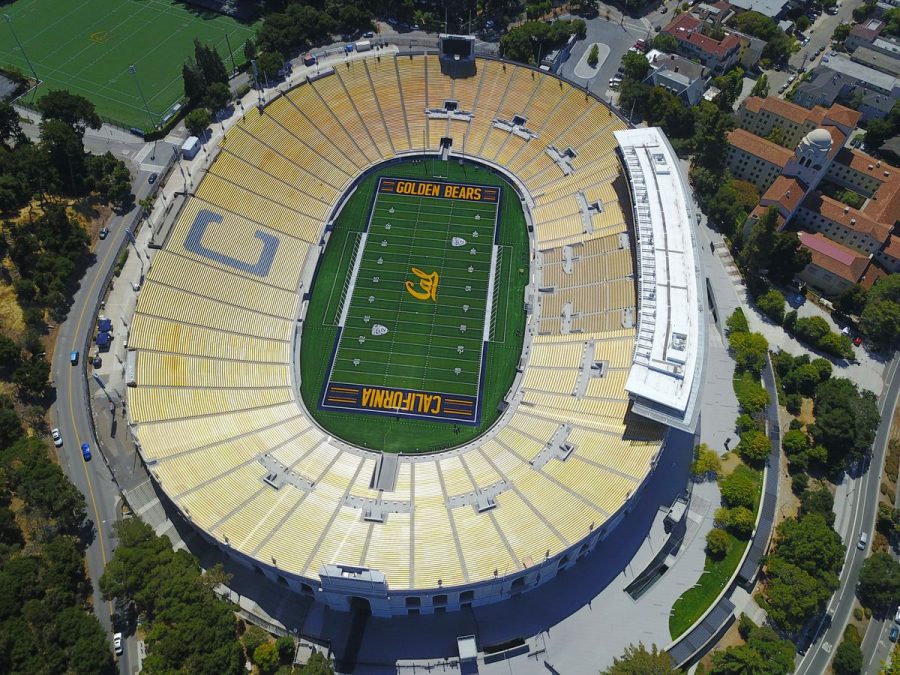How does the Pay to Play Act affect college football’s future?
An aerial image where Cal Berkeley’s football team plays football. Photo by: Anthony Hall on Unsplash
October 24, 2019
Student-athletes have never been able to benefit from their likeness and compete in the National Collegiate Athletics Association (NCAA) until now. A controversial law, termed the Fair Pay to Play Act, has been passed in California, after a long court battle with the NCAA, allowing athletes to make money in college.
The act states that athletes “have the right to profit from (their) identities”. This means that they can hire agents and other representatives, and can be sponsored by certain companies. However, there are some limitations. For example, athletes cannot partner with companies that affect their college’s brand (eg. if the school is sponsored by Adidas, they can’t sign a contract with Nike).
Detractors say that the law gives California colleges an advantage over recruiting. The NCAA argues that five star athletes will want to go to a school in California because they will be able to profit off of their performance.
However, many professional athletes, such as Richard Sherman, are applauding this act. The professional football player, who went to Stanford University in California, shared his opinions to The Mercury News. “I hope it destroys the NCAA in general because I think it’s corrupt and it’s a bunch of people taking advantage of kids, and doing it under a mask of ‘fair play,'” said Sherman.
Furthermore, Sherman predicted that the states of Florida and Texas will follow California’s lead, believing that the NCAA will change its policies about athletes being paid in college.
This act will affect athletes nationally. An Instagram poll of people from Atlanta asked if being paid as a collegiate athlete would affect their school choice. Of the sixty-one who answered: 49 people voted yes and twelve people voted no.
Although the Fair Pay to Play Act does not go into effect until January of 2023, many are interested in what the act may do to the NCAA’s power over a state.The act has less than three and a half years until it goes into effect, but it is subjected to be amended, under the hopes that the NCAA will change its rules.


